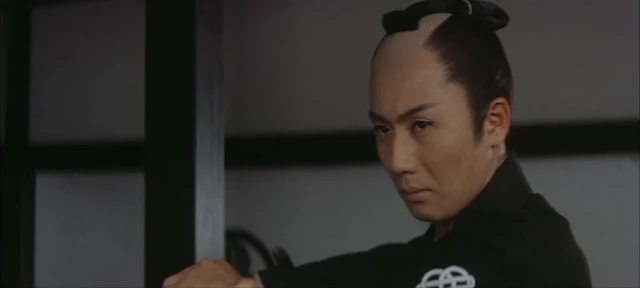A blog formerly known as Bookishness / By Charles Matthews
"Dazzled by so many and such marvelous inventions, the people of Macondo ... became indignant over the living images that the prosperous merchant Bruno Crespi projected in the theater with the lion-head ticket windows, for a character who had died and was buried in one film and for whose misfortune tears had been shed would reappear alive and transformed into an Arab in the next one. The audience, who had paid two cents apiece to share the difficulties of the actors, would not tolerate that outlandish fraud and they broke up the seats. The mayor, at the urging of Bruno Crespi, explained in a proclamation that the cinema was a machine of illusions that did not merit the emotional outbursts of the audience. With that discouraging explanation many ... decided not to return to the movies, considering that they already had too many troubles of their own to weep over the acted-out misfortunes of imaginary beings."--Gabriel García Márquez, One Hundred Years of Solitude
Search This Blog
Tuesday, December 31, 2024
Kenki, aka Sword Devil (Kenji Misumi, 1965)
Cast: Raizo Ichikawa, Michiko Sugata, Kei Sato, Ryutaro Gomi, Goro Mutsumi, Rokko Toura, Kentaro Kudo, Asao Uchida, Ryuzo Shimada, Koichi Mizuhara, Saburo Date, Akihisa Toda, Ryosuke Kagawa. Screenplay: Seiji Hoshikawa, based on a novel by Renzaburo Shibata. Cinematography: Chikashi Makiura. Film editing: Kanji Suganuma. Music: Hajime Kaburagi.
Thursday, December 12, 2024
Ken (Kenji Misumi, 1964)
 |
| Raizo Ichikawa in Ken |
Saturday, December 7, 2024
Kiru (Kenji Misumi, 1962)
 |
| Raizo Ichikawa in Kiru |
Cast: Raizo Ichikawa, Shiho Fujimura, Mayumi Nagisa, Masayo Banri, Jun'ichiro Narita, Matasaburo Niwa, Teru Tomota, Eijiro Yanagi, Shigeru Amachi, Yoshio Inaba. Screenplay: Kaneto Shindo, based on a novel by Renzaburo Shibata. Cinematography: Shozo Honda. Film editing: Kanji Suganuma. Music: Ichiro Saito.
I knew Kenji Misumi's work mostly from the Lone Wolf and Cub series, which is fairly unabashed in its bloodletting, so I was surprised by the almost meditative tone of Kiru, which is also known as Destiny's Son. It's the story of Shingo Takakura (Raizo Ichikawa) and his search for a father figure. When he comes of age, Shingo asks the man he thinks is his father for permission to go on what you might call walkabout: to spend a year wandering in 19th century Japan. He returns home with a secret: He has learned a mastery of an indefensible sword technique. Unfortunately, this mastery inspires an attack on his home, in which his supposed father is killed, but not before revealing to Shingo his true parentage. That sends Shingo on another pilgrimage in which he meets his biological father and eventually a father figure, Matsudaira (Eijiro Yanagi), the head of a powerful clan whom Shingo serves as a samurai. It's a film full of stylized combat and astonishing scenes that proceeds at a contemplative pace which belies its relative brevity (71 minutes): One tense scene, for example, has no background sound other than the intermittent call of a bird.
Wednesday, August 2, 2017
Conflagration (Kon Ichikawa, 1958)
 |
| Tatsuya Nakadai and Raizo Ichikawa in Conflagration |
Tokari: Tatsuya Nakadai
Tayama Dosen: Ganjiro Nakamura
Tsurukawa: Yoichi Funaki
Goichi's Mother: Tanie Kitabayashi
Goichi's Father: Jun Hamamura
Director: Kon Ichikawa
Screenplay: Keiji Hasebe, Kon Ichikawa, Notto Wada
Based on a novel by Yukio Mishima
Cinematography: Kazuo Miyagawa
Music: Toshiro Mayuzumi
I haven't read the Yukio Mishima novel, The Temple of the Golden Pavilion, on which Conflagration is based, but the film has the earmarks of an adaptation from a novel, including incidents, such as Goichi's vandalizing the sword of a naval cadet who mocked him, and such secondary characters as Tsurukawa, the fellow acolyte who befriends him, whose treatment feels truncated, as if their narrative and symbolic weight was greater in the book than Kon Ichikawa was able to give them in the film. But the fine performances of Raizo Ichikawa, Ganjiro Nakamura, and Tatsuya Nakadai help Conflagration succeed on its own. Ichikawa plays a young Buddhist acolyte, Goichi, whose stammer has made him an outcast, and whose troubled childhood only worsens his sense of alienation. Nakamura plays the head priest at a temple, who studied with Goichi's father and takes the young man in out of a sense of duty, eventually paying his way to the university. There, Goichi meets another outcast, Tokari, whose deformed leg has caused him to become bitter and cynical. Although Goichi retains his shyness and naïveté, the two bond as outcasts, with Tokari's darkly rebellious philosophy eventually infecting the young acolyte, provoking him to the destructive act that gives the film its title. Nakadai's intensity in the role gives the sometimes plodding narrative, with its flashbacks within flashbacks, a needed jolt.










